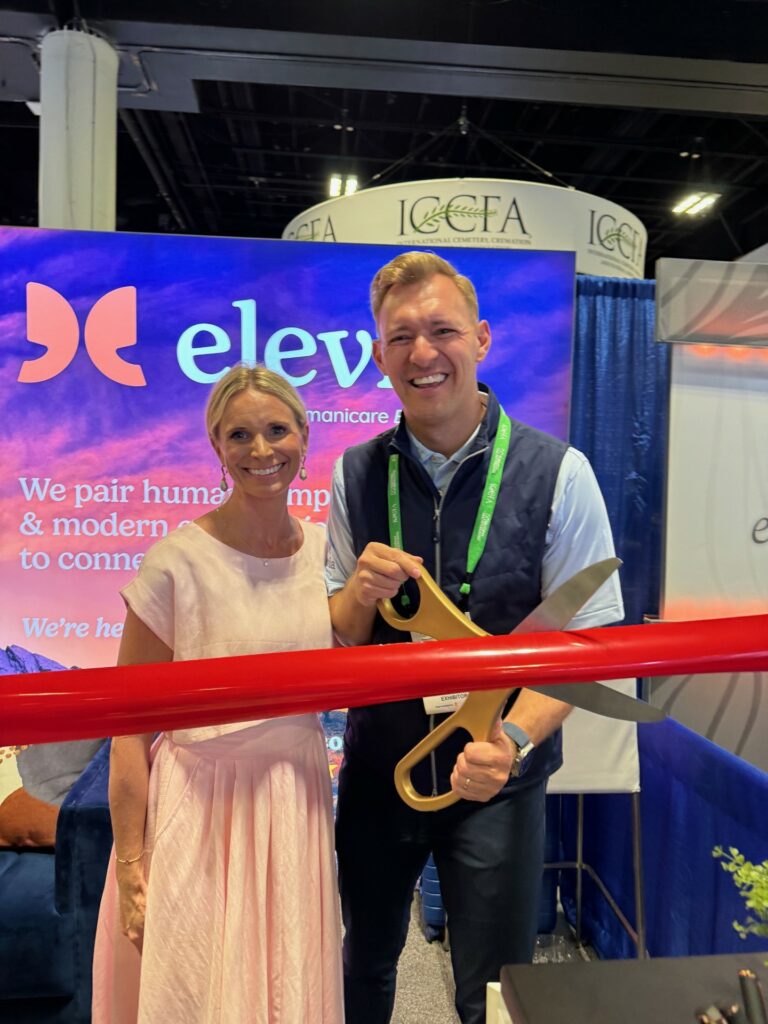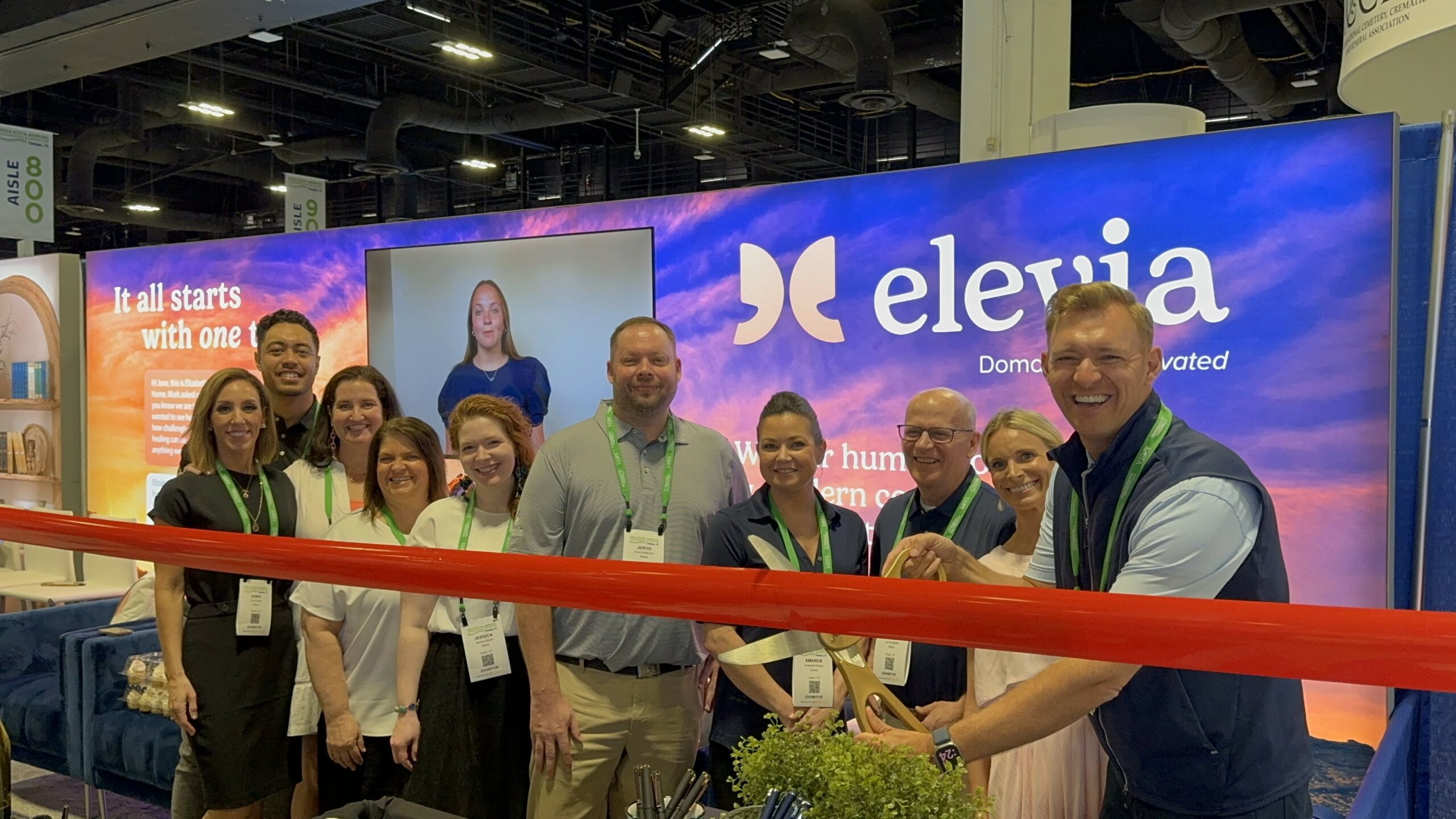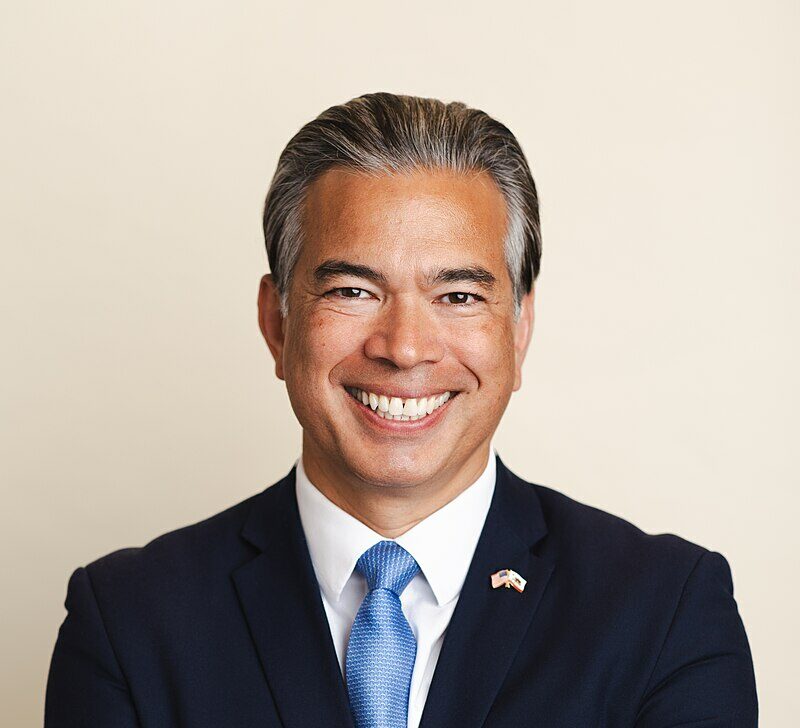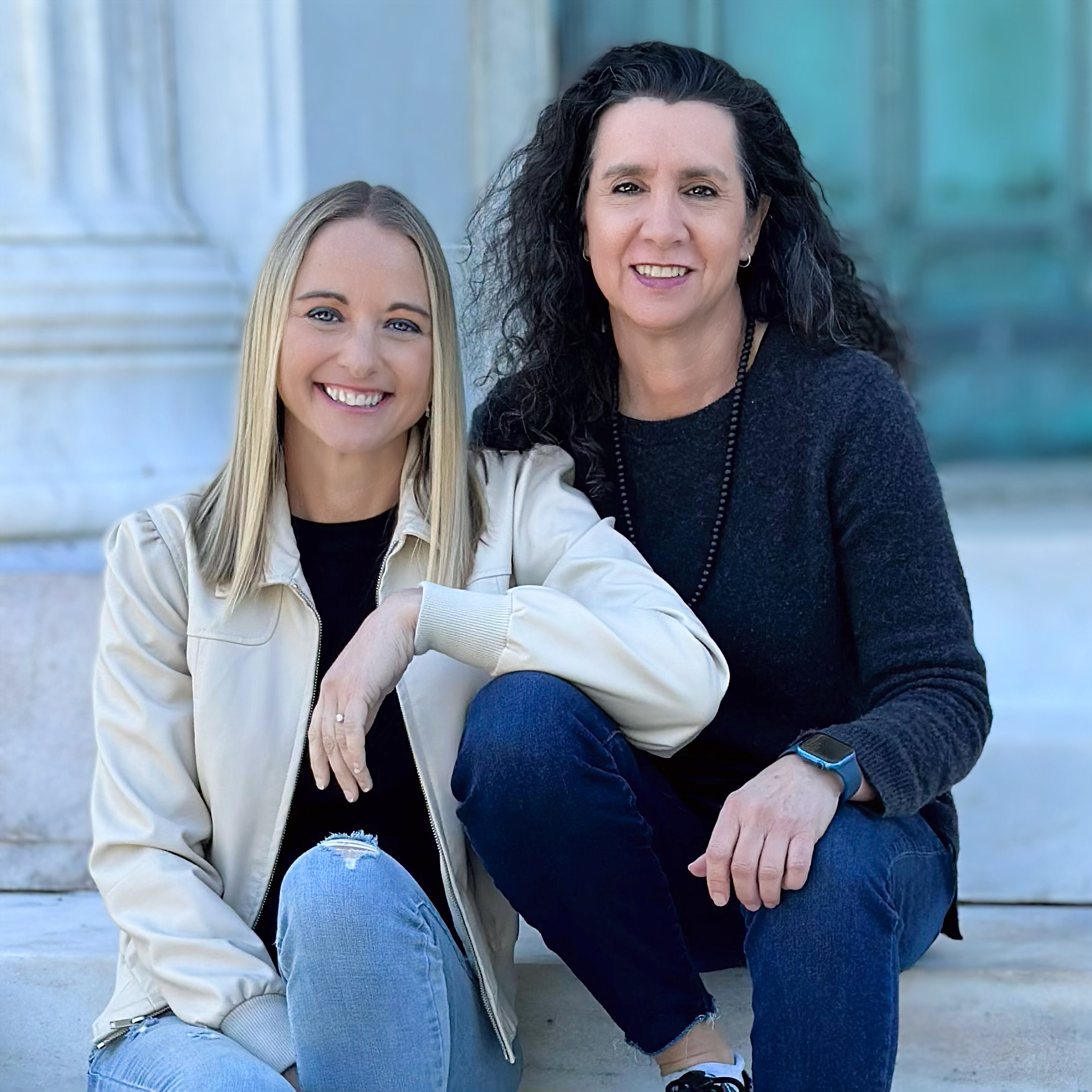By Thomas A. Parmalee
Jon Lefrandt, 40, thought his destiny was to follow in his father’s footsteps to enjoy a successful career in real estate, but life took a sudden turn when tragedy struck his family when he was in his mid-twenties.
That was when his father, Harold – only 46 at the time – died after a courageous three-and-a-half-year battle with brain cancer.
“Dad was a commercial real estate developer,” Lefrandt explained, noting that he “found a lot of love in redevelopment” even though it may have seemed an odd career choice for someone who had majored in sculpture at Brigham Young University.
Harold Lefrandt took his creative energy and revitalized run-down commercial properties, transforming entire communities. “I thought I could channel my creativity in the same way,” Lefrandt said.
But Lefrandt’s dad – who himself was only 11 when his father died – was diagnosed in his early 40s.
The oldest of seven children, Lefrandt was in Japan completing the last week of a mission, and he was looking forward to having his father pick him up to bring him home. “Instead, I found myself rushing home for my father’s brain surgery,” he said.
After the surgery, his dad’s cancer went into remission but only for one-and-half years before it returned with a vengeance.
The Pivot
After returning home from Japan, Lefrandt, who earned a bachelor’s degree in advertising and marketing from Brigham Young University and a master’s in real estate development from the University of Utah, David Eccles School of Business, threw himself into a career in real estate. It looked like a path he’d continue down. “I did a lot of work with residential and custom home builds,” he said.
But with the death of his father and with the arrival of the 2008 recession, Lefrandt began to take a closer look at his future – and it didn’t seem as clear anymore. At the same time, he realized that several of his friends – “really smart people” – were for some reason working for a preneed marketing company based in Portland, Oregon, which was then called Lincoln Heritage Funeral Planning.
Lefrandt flew to Oregon to see what it was all about.
“I thought I was just interested in the business side of it … I was intrigued by the numbers,” Lefrandt said. “But when I went there, it hit me on a totally different level, probably because of my personal experience with loss.”
Lefrandt had done some soul searching, and he’d come to realize that he needed to do “purpose-driven work.” Not the type of work that was fixated on “making a buck.”
So, he took a job at the company, which was in the process of rebranding itself as Precoa.
Reflecting on his experiences with loss, Lefrandt could immediately grasp the importance of the work he was doing.
“We didn’t have a preneed policy for my dad because he was so young,” he explained. But that did not stop him from thinking that his dad deserved “the greatest mahogany casket” they could find … right before he considered if, in fact, that would have been what his dad truly wanted.
“I fell in love with helping funeral home owners see the problems that multigeneration funeral homes have,” he said, observing that in many cases, it may have been the founder of the business who was an entrepreneur, with future generations along for the ride without a guiding compass or a progressive mindset. “They would just keep doing things the way Grandpa told them to do … and I saw a huge need,” he said.
He also saw that he could bridge the gap between grieving families and business owners, and at Precoa, he managed its appointment setting team, which was a critical component of the company’s engine and model.
“When I started there, we had about 20 appointment setters and we grew it to 90,” he said, noting it was a period of rapid growth in which he spent countless hours learning from funeral home owners and family service counselors. “It kind of changed the game for me,” he said.
He marched up the ranks to become Precoa’s director of marketing, opening up a satellite office that booked appointments for agents who produced $20 million in preneed in the first year the office was open. Lefrandt had become a man to be reckoned with.
Eventually, however, he wanted to reach families with more modern technology but with “human touch and human compassion at the heart of it,” and so he struck out on his own.
Asked about how multiple companies were started by former Precoa employees – with Sepio Guard being one of the others – Lefrandt said Precoa has a knack for attracting talented people.
“The people who left were the ones who wanted to bring more innovation to Precoa,” he said, noting that the company did a great job attracting purpose-driven staff. “The customer service side of it is world class … and they attracted a lot of good humans that maybe would not have been in this industry otherwise.”

Calling His Own Shots
When Lefrandt struck out on his own, it was to start a company he and his business partners called the Domani Group, which has its roots in an Italian word – domani – that means “tomorrow.”
“My business partners and I all served missions for church; I served in Japan, another in Italy and another in South America. We landed on ‘domani’ and used that word and later combined it with the word aftercare.”
While the company began with a focus on preneed marketing, it wasn’t long before it developed Domanicare, which began as an aftercare solution that revolved around text messaging. Soon, that became Lefrandt’s primary focus, and for a time, he got out of preneed marketing altogether. The Domani Group was shuttered in 2019.
Focusing strictly on Domanicare, which recently rebranded itself to become Elevia, went a long way in smoothing over the relationship with Precoa, which Lefrandt said initially viewed his undertaking as a threat. “But where we are today, I have countless clients that work with Precoa,” Lefrandt said.
That early pivot to focusing on aftercare and text messaging has made all the difference for the company.
“We tested out text messaging super early,” Lefrandt said, noting that when Domanicare (now Elevia, which he serves as its founder and CEO) sent out its first text message campaign, it immediately drew dozens of responses.
“I knew in that moment, there was something magical about it,” he said.
But back then – and up until today – he has always believed that the text messages Elevia sends out and any follow-up responses should be sent by people – not an artificial intelligence or bot.
“We’ve always wanted it to be human centric,” he said. “If it is not powered by humans, it becomes super informal, and it’s just not great.”
After seeing the initial response to the text messages, Lefrandt and his team began asking funeral homes what they were doing with aftercare. “Almost every one of them had an immediate guilty conscience because they knew they should be doing more but were not,” he said. “For the most part, aftercare was the thing everyone neglected.”
It was understandable because for many funeral home owners, the at-need business was what was demanding all their attention. “Aftercare was always the afterthought,” he said.
He recognized a major pain point for funeral homes, and he realized families desperately wanted – needed – aftercare.
The proof of that lies in the data.
“The text message response rate is 50% on the initial campaign we do,” he said. “That said to me that people wanted to hear from the funeral home and wanted the relationship to continue.” He added, “I realized that we could grow and scale and help way more funeral homes if we were incredibly disciplined and if we narrowed down our product to focus on the aftercare world – and that proved to be true.”
Today, Elevia serves about 1,500 funeral homes, cemeteries, pet loss centers and hospices in the United States and Canada, with its core business being funeral homes. “We would not be able to do that on the preneed side,” Lefrandt said. “The model is very expensive, not to say that the Elevia model is not expensive – it is. Building technology platforms that can handle millions of contacts is a difficult beast, and we figured that out. Now, it is a well-oiled machine.”
After about two years of focusing strictly on the entity now known as Elevia, Lefrandt and his team shifted some of their focus back to traditional preneed marketing, by relaunching its preneed marketing business as Domani Preneed in April 2021. Today, that company is run by Riley Facer, who serves as CEO. “It is a separate entity,” Lefrandt said of Domani Preneed. “I hold equity in that business and helped launch it, built the model, etc., and sit on the board, but am not involved in the day to day.”
At one point, Lefrandt thought the two companies could be synergistic, “but they are so drastically different,” he said. “We realized what Domanicare (now Elevia) could do for growth and if was tied to preneed, it became more complicated.”
Running what is now Elevia also allowed Lefrandt and his team to work with multiple preneed providers. Running it as a company that is separate from Domani Preneed was “100% the right move” and rebranding it as Elevia further distinguishes the two companies as being completely separate, he said.

Elevia: Much More Than Just Aftercare
With the rebranding, Lefrandt wants to make it clear that Elevia offers much more than just aftercare solutions.
“We are not selling insurance, but we are able to do appointment setting,” he said. “We can do surveys. We’ve started hosting events teaming up with For Grief (a separate company that Lefrandt started that focuses on helping families navigate their grief) and the speakers bureau that we created. We are driving crazy traffic in the cemetery world to Memorial Day events. We are able to do so much more than aftercare.”
What Lefrandt wants death-care professionals to think of when they think of Elevia is a company that focuses on the consumer experience. “We are a consumer journey platform,” he declared.
Elevia wants to know about all the touchpoints a funeral home, cremation business or cemetery has with consumers and how those interactions happen. “We want to educate them beyond their preneed and aftercare clients,” he said. “Who are the people coming into services and how can we engage with them in a meaningful way?”
As a result of all the learning it has done in the space, the team at Elevia is well equipped to create customized customer journeys for funeral home clients.
An Important Partner
In November 2020, Domanicare (now Elevia) announced that it was joining forces with Homesteaders Life Company.
Homesteaders has made a significant investment in Elevia as well as Domani Preneed and For Grief. Their ownership stake for each business varies, said Lefrandt, who serves as Homesteaders’ chief consumer experience officer – a position he took in January 2024 after more than two years as the company’s senior vice president of consumer experience.
“Partnering with Homesteaders in 2020 was a great decision for us,” Lefrandt said. “I really value the leadership and direction of Steve Shaffer (president, CEO and board chair of Homesteaders) in this profession. He and I are aligned in creating more meaningful experiences for funeral homes and the families they serve. At Homesteaders, the focus is ‘to help families design a better farewell, benefiting those they love.’ I am very much aligned and in support of that mission and am proud to work together with them to help make the profession better.”
While Homesteaders’ clients receive preferred pricing from Elevia, the company works with death-care professionals “across the board,” Lefrandt emphasized.
Domani Preneed, however, exclusively sells Homesteaders Life products, he said, reiterating that rebranding to Elevia and distancing itself from the Domani name made sense to emphasize that distinct difference.
So far, the reaction to the rebranding has been “remarkably positive” from customers, competitors and prospects, Lefrandt said. “The biggest thing for me is to continue to convey that this is not just an aftercare solution,” he said. “This is a consumer experience platform and offering. So, it is really about exploring what that looks like and partnering with us to enhance that experience. That is vital for any business — regardless of what business you are in.”
That may be a challenge as businesses don’t usually have “consumer experience” as a line item on the budget, but Lefrandt is soundly convinced that firms that make this a priority will trounce competitors.
Jumping on that bandwagon is crucial, he said – especially since everyone is so transient, and they usually don’t rely on the funeral home their parents or grandparents looked to during a time of need.
“Now, we live in the world of Google and search,” he said. “We have to think about death care with a very different mentality than ever before, and that presents an awesome opportunity. We know we can help educate consumers on the value of funeral service in a much more impactful way.”
One of those impactful ways is by helping funeral homes do a better job generating positive online reviews, Lefrandt said.
“That is one of the biggest returns on investment we can offer, and I think we are the best in the business,” he said. “We have generated over 80,000 five-star reviews across the country.”
He appreciates the fact that getting online reviews can be tough for funeral homes as it can be an awkward ask.
“You are not going to ask at the arrangement conference or when people come to a viewing or the service itself,” he said.
Elevia has found that when it includes the request in the follow up via text messaging, it’s natural – and the positive reviews come freely and easily.
“Because people are on their mobile device, they don’t need to do anything but click a link in a text message,” he said. “That makes it seamless and easy for families.”
The bottom line is that funeral homes should pay more attention to online reviews. “If you don’t have positive reviews, the likelihood of you capturing new business is very slim,” he said. “When I see a location with five total reviews, but it has been in business for five generations, it blows my mind.”
Fortunately, Elevia “can absolutely help with that,” Lefrandt said, and when it brings on a new client, it offers a “catch-up campaign” to collect positive reviews from families a firm has served over the past several months. “Generally, we give a free, 30-day trial with us,” he said, noting that at a bare minimum, the offer can help a funeral home boost its positive online reviews.
Elevia can also help a funeral home recognize when a family is not happy. “Sometimes, they have no idea a family was as disgruntled as they were until they see their response and the dialogue,” Lefrandt said. “And if a funeral home is trying to resolve a concern, we let that play out first before sending out a text message prompting a family to share a review.”

AI, Pricing and More
Asked about artificial intelligence, Lefrandt said he uses it every single day. “It’s the future, and like anything, we have to lean into that a little bit.”
But at the business level, Elevia is striving to use AI to make operations more efficient – and that’s it. “My commitment today is still that every message is read and responded to by humans,” he said. “When dealing with grieving families – as I look at those scenarios – I don’t have any confidence in AI. You can almost feel that it is robotic,” he said.
There are, however, ways that AI can help with scripting or prepopulating data that can save businesses and customers time, he said. “We are not afraid of it,” he said. “We will look for any and all opportunities to use it where it makes sense without taking away from our core, which is to have this be a human experience.”
The pricing for Elevia is simple and easy to understand: Funeral homes pay $399 per month for six campaigns per year for up to 600 contacts. There are no long-term contracts.
“The majority of locations fit into that 600-call range,” Lefrandt observed.
If a firm needs something above that threshold, Elevia will consider what price to charge on a case-by-case basis.
“There are different variables that go into custom pricing,” Lefrandt said. “If someone has 40 locations that they manage from one headquarters, that is a lot different for us, as we are not directly dealing with 40 rooftops.”
If you are a Homesteaders Life Insurance Company customer, you are in luck: You’ll pay only $329 per month for six campaigns per year for up to 600 contacts, according to Lefrandt. Customers that do business with Homesteaders may also enjoy some other limited perks, such as a longer trial period, which Elevia determines on a case-by-case basis.
Elevia also serves other markets that interface with death care, such as hospice and home health and pet loss and insurance. There are currently no plans to expand into new segments as Lefrandt still sees ample room for growth in established verticals.
The areas Elevia focuses on outside of death care are “synergistic with our core,” Lefrandt said. “They go to the foundation of aftercare. For instance, with life insurance, we can focus on the beneficiary and the person grieving. And with pet loss, we often see even more engagement than with traditional funerals. The fact that we are validating grief is appreciated so much.” But funeral homes, cemeteries and cremation businesses will always remain the foundation that Elevia is built on, he vowed.
What is common with all these verticals is that Elevia is generally communicating with a senior population, something it has gotten really good at, he said.
Where Two Paths Diverge
The death of Lefrandt’s father at such a young age is a tragedy, but there is no doubt about it: If he had not had to navigate such a profound loss, it is unlikely he would have ended up working in death care.
Moreover, as a result, about 10 million text messages that have been sent out to individuals who have recently lost a loved one and all the words of support that Elevia has lent to those struggling to cope have been sent.
On its own, each of those text messages might seem small. But when you combine all of them together and consider how many lives Elevia has changed, how many smiles it has created and how much help it has provided, it’s clear that while Harold Lefrandt not only had an incredible impact on others during his life, but that his influence continues today though his son, Jon – and no doubt through all his children in their own ways.
Those two things – his father’s death and the good that came after – may be hard to reconcile, but Lefrandt is now in a place where he can grasp what it all means.
“I think all things in life can be used for good,” he said. “So, I look at it … and I think there is no way I would have ever created these solutions and helped all these people if it wasn’t for the loss of my dad. It was because of that I was so intrigued and that I thought I could help this space.”
The memory of the great times he had with his dad and the lessons he learned from him continue to be a driving force for Lefrandt.
“I am grateful that I have been able to use my creativity, entrepreneurial energy and enthusiasm – coupled with my personal experience – to make navigating the loss of a loved one better for other people,” he said. “That is truly the motive behind all of this that has led to its success … I always felt the money would follow naturally if I did things for the right reasons, and that has been the case.”
Through all the ups, downs and the pivots, Lefrandt’s family and faith have been his rock, with his wife of almost eighteen years, Ashley, serving as his cheerleader-in-chief, never wavering in her belief in his ideas even when he may have doubted them himself. Through it all, she’s teamed up with him to raise their four children – two boys and two girls – and make their home in Highland, Utah a happy place.
“She has been my confidante and friend,” Lefrandt said.
From the outside looking in, it’s evident that even though Lefrandt has had his share of challenges, he’s a very blessed man.

Learn more about Domani Preneed.








